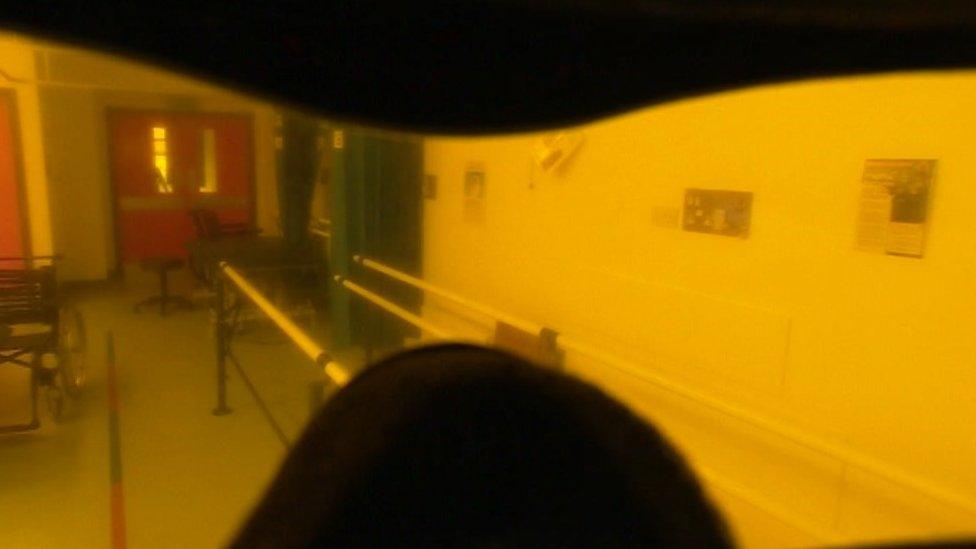Empathy suit helps Bristol carers understand dementia
- Published
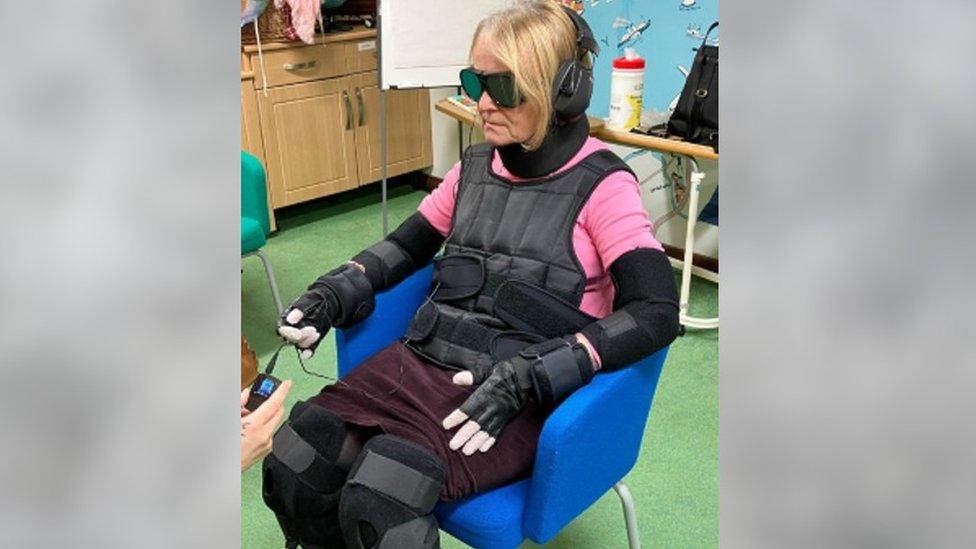
The suit has weights to restrict movement, goggles to affect vision and gloves to make hands shake
Staff working with dementia patients are being trained to use an "empathy suit" to help them understand what it is like to live with the condition.
The suit has weights to restrict movement, goggles which affect vision and gloves which make your hands shake.
Deerhurst Care Home in Bristol has decided to purchase its own suit and all new staff will use the equipment as part of their induction process.
"At times I felt sad and lost," said a carer who took part in the training.
"Emotions were running high. I felt frustrated and wanted to give up," she added.
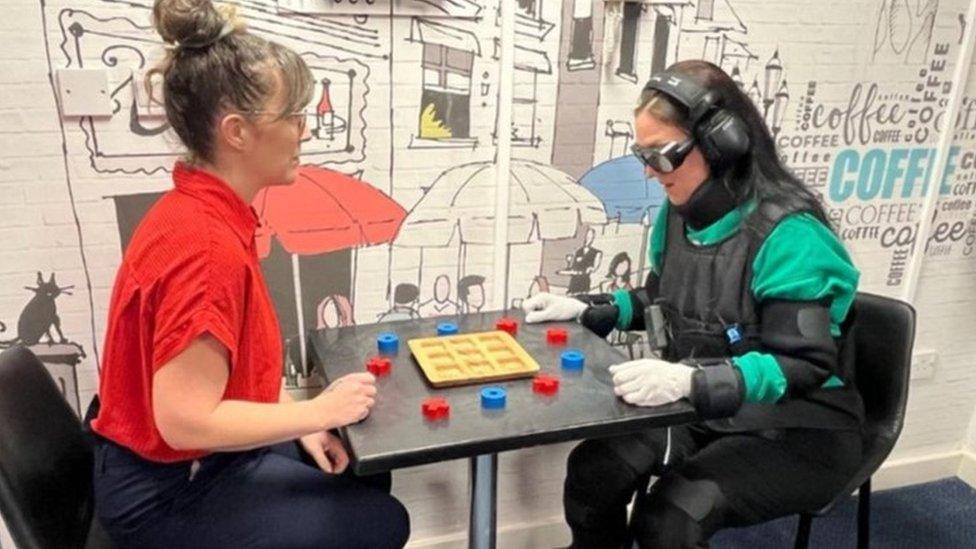
Around 60 employees of the care home have taken part in the training so far
Around 60 employees have taken part in the training so far.
Care home manager Lesley Hobbs said: "The suit is amazing and so insightful.
"It has weights around the ankles and knee pads to restrict the movement and speed of the wearer. There are tinted goggles that affect peripheral vision alongside the colours around them.
"The gloves that are worn are connected to a machine that makes hands shake, meaning control of movements and coordination are thrown out.
"You can wear headphones that play a continuous tinnitus sound, and the neck brace reduces the full and able movement of the neck. It was fascinating," she added.
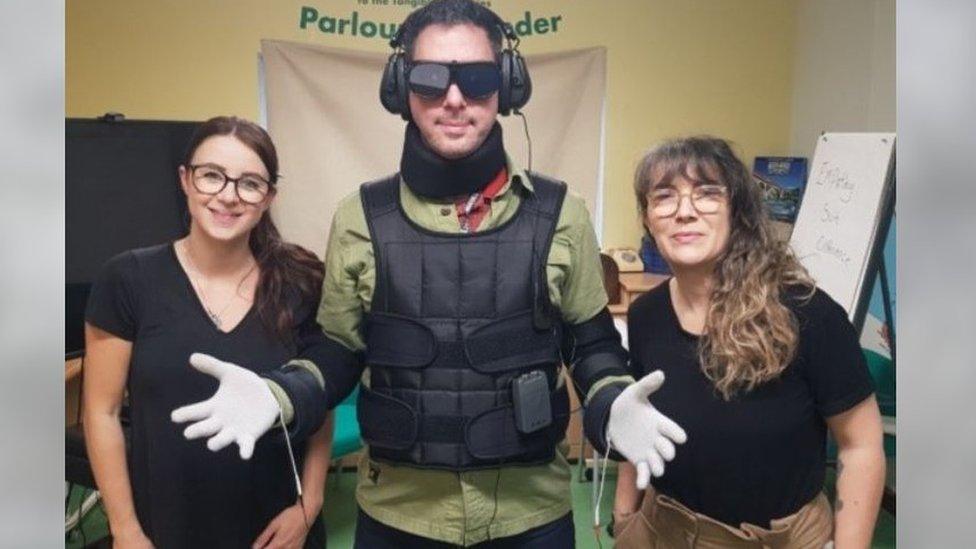
BBC Radio Bristol's Joe Lemer said his experience in the suit was "frustrating"
Team leader, Emma Cording, said carers who went through the training could find it overwhelming.
"They feel a sense of the loss of their mobility, their strength, all of their senses, like the feeling in their fingers.
"It's the distress that causes. So it can be very, very hard," she said.
However, Ms Cording said the suit was invaluable for helping staff to be more sympathetic to patients.
"It helps them react, sometimes, a little bit slower, because people can be quite quick to react with the residents, or just sometimes presume how they may be.
"Now they can kind of actually think and feel what the residents might be feeling when they're trying to support them," she added.

Follow BBC West on Facebook, external, X, external and Instagram, external. Send your story ideas to: bristol@bbc.co.uk , external
Related topics
- Published28 February 2014
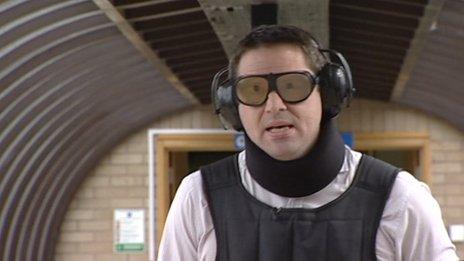
- Published17 September 2015
